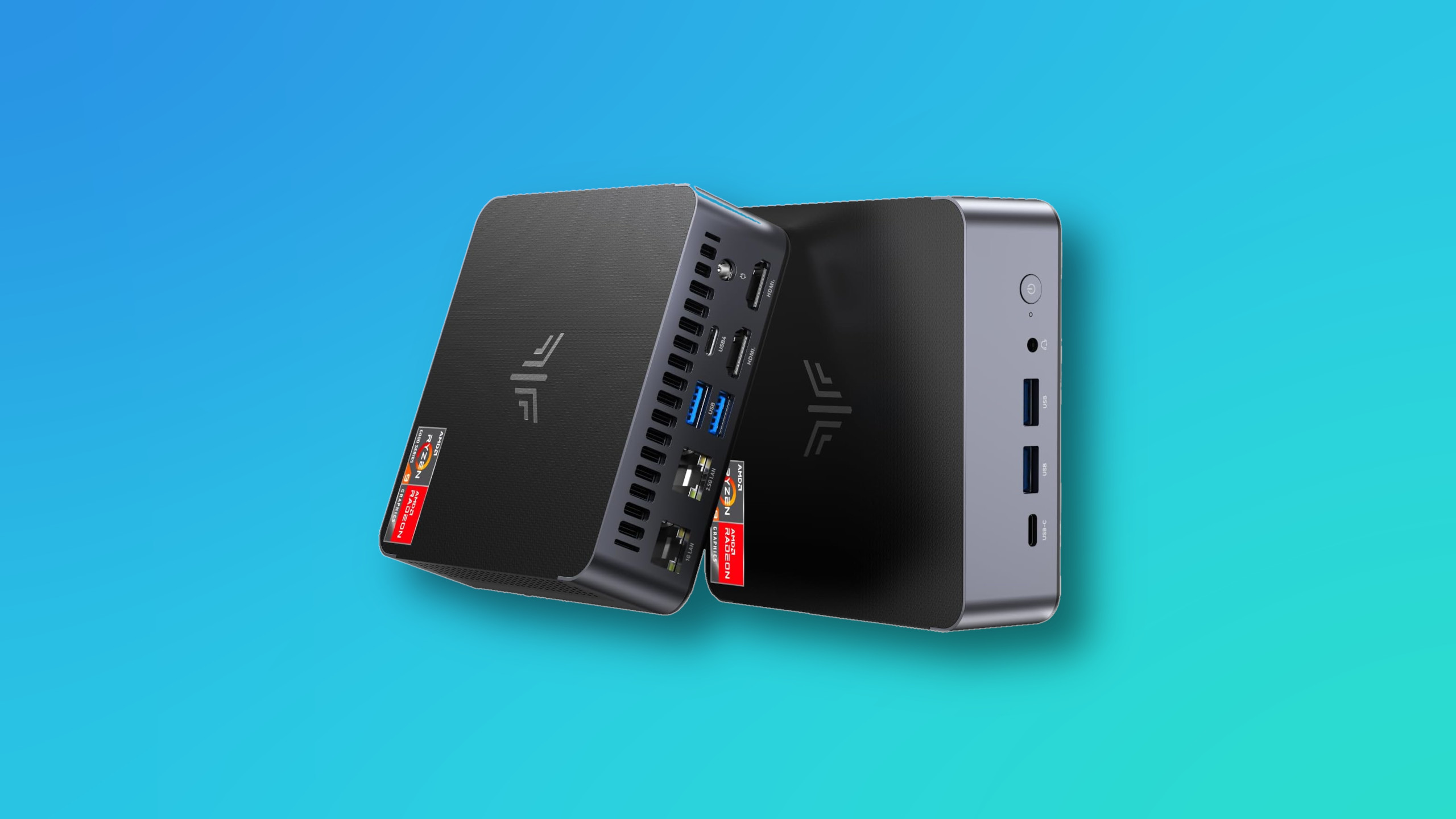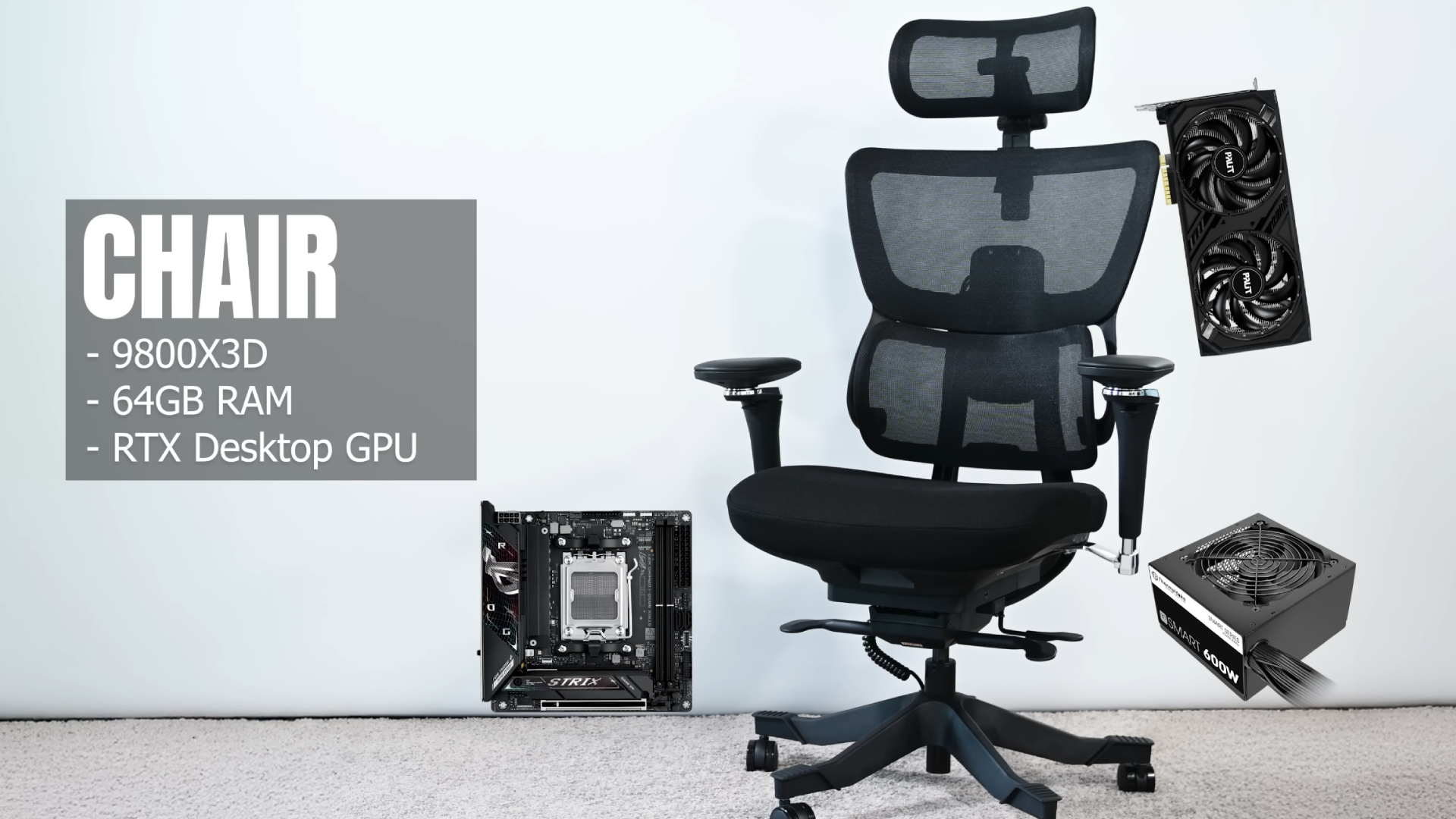SSDs behave like any other silicon component in your PC: The faster they run, the more heat they typically generate. It’s enough that a small ecosystem of SSD coolers has sprung up. Now, another fanless cooling chipmaker, xMEMS, has announced plans to cool SSDs.
The problem is a simple one: The best SSDs for your PC generate a ton of heat. When I’m installing test applications for a laptop, the hottest it gets to the touch isn’t under load; it’s simply while copying tens of gigabytes of data. And the latest PCI Express 4 and 5 SSDs are the worst culprits.
xMEMS surfaced in 2024 as a competitor to Frore’s AirJet, which promised to actively cool a chip by vibrating a thin membrane to create airflow. xMEMS, however, was already established in other markets, like earbuds, where the membrane was used to generate sound.
In early 2024, Frore pushed its AirJet into SSD cooling with the AirJet Mini and Mini Slim, which the company claims can dissipate 5.25W of heat from an SSD. What xMEMS is saying today is a little more conservative: xMEMS is touting two solutions, one for data centers and one for the SSDs used by PCs. In the data center, xMEMS claims that its own thermal modeling shows that it can dissipate 3W of heat. It’s not making any claims regarding M.2 SSDs, just that it can dissipate temperatures by about 20 percent.
The xMEMS solution, though, is smaller: just 9.3 x 7.6 x 1.13mm, compared to the 27.5 x 41.5 x 2.65mm footprint of the Frore Mini Slim.
That’s not to say that Frore has sat idly by; at Computex, the company showed off the AirJet Mini G2, dissipating 7.5 watts of heat via 1750 Pascals of back pressure at 21 dBA noise level, within a 27.3 x 41.6 x 2.5mm layout. That’s been first adopted by a machine vision company, Crevis.
The new xMEMS cooling solution isn’t here; it will ship in volume in early 2026, the company said. There’s also no indication that you’ll be able to buy standalone solutions from either Frore or xMEMS. But the simple availability of competing, low-form-factor, active-but-silent cooling solutions for an SSD means that you’ll benefit from lower prices and better products in the long run.
SSDs behave like any other silicon component in your PC: The faster they run, the more heat they typically generate. It’s enough that a small ecosystem of SSD coolers has sprung up. Now, another fanless cooling chipmaker, xMEMS, has announced plans to cool SSDs.
The problem is a simple one: The best SSDs for your PC generate a ton of heat. When I’m installing test applications for a laptop, the hottest it gets to the touch isn’t under load; it’s simply while copying tens of gigabytes of data. And the latest PCI Express 4 and 5 SSDs are the worst culprits.
xMEMS surfaced in 2024 as a competitor to Frore’s AirJet, which promised to actively cool a chip by vibrating a thin membrane to create airflow. xMEMS, however, was already established in other markets, like earbuds, where the membrane was used to generate sound.
In early 2024, Frore pushed its AirJet into SSD cooling with the AirJet Mini and Mini Slim, which the company claims can dissipate 5.25W of heat from an SSD. What xMEMS is saying today is a little more conservative: xMEMS is touting two solutions, one for data centers and one for the SSDs used by PCs. In the data center, xMEMS claims that its own thermal modeling shows that it can dissipate 3W of heat. It’s not making any claims regarding M.2 SSDs, just that it can dissipate temperatures by about 20 percent.
The xMEMS solution, though, is smaller: just 9.3 x 7.6 x 1.13mm, compared to the 27.5 x 41.5 x 2.65mm footprint of the Frore Mini Slim.
That’s not to say that Frore has sat idly by; at Computex, the company showed off the AirJet Mini G2, dissipating 7.5 watts of heat via 1750 Pascals of back pressure at 21 dBA noise level, within a 27.3 x 41.6 x 2.5mm layout. That’s been first adopted by a machine vision company, Crevis.
The new xMEMS cooling solution isn’t here; it will ship in volume in early 2026, the company said. There’s also no indication that you’ll be able to buy standalone solutions from either Frore or xMEMS. But the simple availability of competing, low-form-factor, active-but-silent cooling solutions for an SSD means that you’ll benefit from lower prices and better products in the long run. CPUs and Processors PCWorld




















































































































